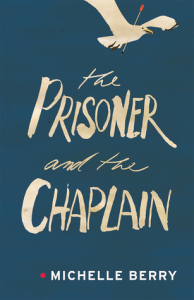How Steeple Sinderby Wanderers Won the FA Cup by J.L. Carr
(1975; new edition, Penguin, 2016)
A Natural by Ross Raisin (Jonathan Cape, 2017)

For all its monolithic domination of the media, football is still strangely underrepresented in fiction. In recent times, only David Peace’s febrile masterpiece The Damned United looks as if it will still be read in fifty years’ time – and that’s not really about football at all. It is far more important than that.
Of course, there one or two practical reasons for novelists to be wary of the subject. First and foremost, football is a game you watch, live. It is presumably very difficult to describe in any kind of dramatic way, with dozens of stories unfolding, dovetailing, erupting and concluding, in real time. Even a 500-word match report often fails to recapture the drama of a particularly vivid encounter.
Indeed, football’s media ubiquity could also put off novelists from choosing to depict it at all; the game is inescapable and irrepressible, constantly topping up its own legend. Therefore, if the constructed narratives fed to us by the media are compelling and frequent enough – and, funnily enough, they are – is there even room for the football novel to exist? In a recent interview with The Guardian, Ross Raisin detailed the difficulties faced by publishers trying to find a place for A Natural.
But perhaps there’s a third and more intellectually sticky reason why football so often doesn’t work as fiction. Football and novels, at their best, perform the same basic functions: providing escape, entertainment and insight – and, whether deliberately or not, reflecting the society in which they exist. So it follows that when the two are thrown together, there is every chance they will cancel each other out – just like two greats playing out a bore-draw in a World Cup final.

The recent emergence (or re-emergence, in the case of Steeple Sinderby) of these two highly unusual football-related works provides an excellent opportunity to gauge how far both football and fiction (and, by extension, society) have come.
The practical awkwardnesses of depicting the game itself are skilfully shaken by Carr and Raisin in both novels – they simply avoid doing it wherever possible. Like all wise sports novelists, they realise that, to the reader, the actual performance of sport is the least interesting part. In How Steeple Sinderby Wanderers Won the FA Cup, J.L. Carr’s surreal novella charting the rise of a village team to the dizzy heights of Wembley glory, much of the action arrives second-hand – in the form of local reporter Alice ‘Ginchy’ Trigger’s crazed, impenetrable match reports for the local newspaper. From pretty much the get-go, we are firmly in the realms of fantasy; in his excellent introduction, D.J. Taylor describes the novel as ‘nothing less than a straightforward exercise in wish-fulfilment’, and there is an undeniable otherworldliness to Wanderers’ almost serene progress to Wembley. That they meet Rangers there, due to a newly-introduced (and entirely fictional) quirk in the tournament allowing Scottish clubs to play, only adds to the off-kilter atmosphere. That being said, the sequence where Wanderers host Manchester City, and the accompanying hullaballoo of such a prestigious visit, will ring awkwardly true with any Sutton supporters who read it.
Yet in between its exaggerated Boy’s Own caricatures and implausible plot advances, Steeple Sinderby does occasionally conjure an admirable portrait of amateur football. Its narrator, Joe Gidner, who acts as club secretary, archivist, kit man and team selector, is believable and relatable, and fairly depicts the countless individuals who perform those same functions today (again, Sutton’s recently-disgraced Wayne Short springs to mind here). And the gradual decline in health of captain Alex Slingsby’s wife, Diana, is movingly rendered, providing a necessary melancholic undercurrent to what could have been an overly fantastical foray. There is also a downbeat coda – one which any football fan will recognise – detailing the post-success years. One day, in the gathering dusk, the chairman joins Joe as he looks mournfully over the village green:
‘Mr. Gidner… I know what you’re looking for. But it’s gone, and it’ll never come back.’ Then – and only for an instant – our chairman gave himself away. ‘And more’s the pity, lad,’ he said.

If Steeple Sinderby is a by-product of a footballing era dominated by unlikely heroes and unreachable stardom, Ross Raisin’s A Natural is perhaps the most accurate depiction yet of the reality of the modern footballing world. It represents a generational shift; in the ‘60s and ‘70s, players regularly endured Beatlemania-style scenes from fans desperate to get a glimpse of their idols in the flesh, and who waited patiently for Saturday at 3pm to find out the next twist in the season’s tale. These days, although that culture still proliferates in places (see Beckham et al on Manchester United’s early tours of the Far East), we are far more used to seeing our heroes on a more regular basis, even daily. What’s more, we can contact them, directly, through social media. In fact, our relationship with footballers has now become so close as to directly influence performance; during Euro 2016, Roy Hodgson was moved to ask the online community to give Raheem Sterling a break after his Twitter feed was overwhelmed with negative comments following one or two lacklustre appearances.
A Natural does an accurate job of reflecting this new-found intimacy with football and its players, and introduces aspects of narrative never previously attempted in novels of the genre. Frank – and necessary – discussions of sexuality, transcriptions of online message boards, lurid initiation ceremonies… these are new qualities of a game that one suspects J.L. Carr would no longer recognise.
Yet Raisin pulls off this difficult juggling act with aplomb. The central character, young Tom Pearman, a nippy winger whose early career promise is at the mercy of a cutthroat transfer industry, must balance the mundanity and frustration of lower-league games with the new-found realisation that he is gay. His burgeoning – and tenderly depicted – affair with the club’s groundsman, is a storytelling triumph, establishing the real risks faced by both men while also summoning the excitement and desperation brought on by first love. It represents the centre of the novel, and should rightly elevate and further discussions about how to combat homophobia in a sport in which no current player has come out since 1990.
Raisin is too skilful a writer for A Natural to be simply a one-issue novel, though. When he is at his best – and he is, here, frequently – he is capable of rendering the domestic universal. And modern football, especially in the lower leagues, is rife with grating domesticity: months spent in hotel rooms or boarding with strangers along with other youth players; week after week of bench-warming or even non-selection; attending and speaking at dry corporate functions. Raisin’s other leads, the captain of the south coast club (referred to only as ‘Town’), Chris Easter, and his wife, Leah, are sensitively portrayed attempting to overcome the banality and frustration of a season spent largely on the sidelines (Easter is injured early in the novel). While Chris haunts the club’s online message boards, isolating himself in the process, Leah begins to realise the temporary nature of her husband’s successes. Her quiet creative awakening is a joy to read. Raisin inhabits the pair’s respective worldviews with remarkable ease; the mask rarely slips, and while there are one or two places where the narrative leaps too far for the characters to realistically keep up with, A Natural is easily the finest football novel of the decade, and represents a great progression in the way that football can be presented on the page. And while it is a world away from Steeple Sinderby’s flamboyant stylings, at the heart of both novels is a great love of the game – and of the people whose lives are irrevocably altered by it.
By Tom Clayton
Share this:





